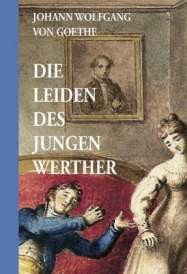

|
Cult of
Sensibility
|
|
|
•sensibility
(Goethe 17) = refers to "quickness and acuteness of
apprehension or feeling; the quality of being easily
and strongly affected by emotional influences;
sensitiveness" (OED 5a). The cult of sensibility
reversed stereotypical roles normally accorded men and
women.
|
•Pre-1770: Head and
intellect = maleness, heart and body =
female
•Post 1770: Men
associate more with feeling and sensibility,
and in comparison to men, women seem cold
and incapable of true sentiment
|
| Gender Stereotypes Rom. Era | |
| Female |
Male |
|
•Irrational
•Receptive, passive
•Cold, unfeeling
•Fall into fixed
roles: virgin, mother, whore
•Can puppet or
imitate knowledge
|
•Rational
•Active
•Possess true
sensibility
•Can take on
unlimited roles in society and imagination
•True intellectuals
and scholars with deep understanding of knowledge
|
| Naive View | Ironic view | |
| Werther | bourgeois hero, proto-existentialist (“between being and non-being,” 67), authentic lover | overly sentimental, unable to see Lotte for her true self, a “sick” romantic (to Heinrich: “how I envy your melancholy,” 70) |
| Lotte | "innocence" (Goethe 27), mother of nine children (and Werther), a young woman who had to grow up quickly, a beautiful soul (“a refined feminine soul,” 79) | a coquette who
flirts with men (17, 61) and draws them (siren-like) to
the brink of madness (Heinrich, 71), loves having W.
around but won’t even give him away to one of her
friends (83)
Works Cited |
Works Cited
Goethe, Johann Wolfgang von. The Sufferings
of Young Werther. Trans. Harry Steinhauer. NY: Norton, 1970.
Print.
"Sensibility." Oxford English Dictionary. 2011. Accessed Feb.
2012. Web.